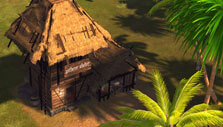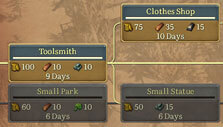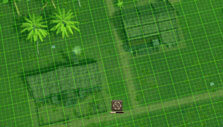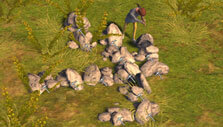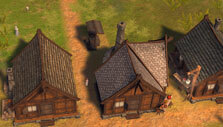Patron
 by Aethyna
Aug 29, 2021 |
1
Votes |
60
Played |
0
Reviews
by Aethyna
Aug 29, 2021 |
1
Votes |
60
Played |
0
Reviews
 9
rate
Patron is a medieval city builder that is pretty similar to the indie game, Banished. In this game, you play as a pioneer sent by your King to colonize a new region. With a group of peasants to help, it is up to you to build a town from the ground up and develop it into one of the most prosperous colonies of the empire!
Play Now
Similar Games
Played
9
rate
Patron is a medieval city builder that is pretty similar to the indie game, Banished. In this game, you play as a pioneer sent by your King to colonize a new region. With a group of peasants to help, it is up to you to build a town from the ground up and develop it into one of the most prosperous colonies of the empire!
Play Now
Similar Games
Played
People Also Played







Summary
Patron is a medieval city builder that is pretty similar to the indie game, Banished. In this game, you play as a pioneer sent by your King to colonize a new region. With a group of peasants to help, it is up to you to build a town from the ground up and develop it into one of the most prosperous colonies of the empire!
Gameplay
To start, you’ll need to choose a banner and confirm your town’s name. Once done, you can then customize your game by adjusting the many parameters provided, including the map. Although I’d usually recommend starting on Easy mode first so you can learn the ropes as you play, but I found that the game’s tutorial has been very helpful here so I was able to just breeze through the “harsh” winter on easy mode. Hence, if you want a bit of challenge, I’d recommend Normal and above.
That said, if you’re familiar enough with the game or want to figure things out for yourself, you can turn off the tutorial via the setting.
Now, Patron is more of a sandbox city-builder rather than one with objectives for you to complete. The game is all about optimizing production chains and subsequently, pursuing advancements. So, at the beginning, it’s important to produce enough raw materials so you can have enough materials to “fuel” your other production facilities in order to craft more profitable items.
For instance, you can get a consistent supply of wood from the Forester which can then be sent to the sawmill to be turned into firewood. Some structures, like mines, will require a regular supply of wood as part of their upkeep as well. However, at the start, you’ll likely be getting most of your wood by getting your villagers to manually chop down nearby trees.
Getting the efficiency of your structures right is also another crucial part in regard to optimizing your production chains. For example, there are ore-rich areas where mines will work at a much higher efficiency than if they were placed in an ore-deficient area. The same thing goes with crops and trees, and land fertility. The more fertile a stretch of land is, the better the harvest.
As your town expands, you’ll need to make sure your production scales up accordingly, be it by upgrading existing structures or building new ones. This is where the challenge really comes in. If you expand too fast and the production chains you currently have may rapidly fall apart. It’s all about being able to balance the resources you have and can produce with the resources you need. The game does this part of the gameplay remarkably well and this, in turn, makes the game incredibly satisfying to play.
Of course, besides upgrades and expansions, you’ll want to invest in research so you could unlock better and, hence, more productive buildings, as well as new production facilities which will then allow you to produce items that are usually more luxurious and lucrative to trade. As your civilization develops, your peasant will become merchants and even noblemen, and hence, will also want to have more luxurious items.
Trading via the docks is another important aspect of the game since it’s the fastest way to earn a bunch of coins as well as any resources you may need. Since it’s the medieval times, trading is done via ships so there’s a capacity limit as to how much you can trade at any one time, as well as how long the “downtime” is – ships don’t magically teleport to their destinations, after all!
From time to time, you will receive various edicts from the King or news of certain events. You’ll then be expected to choose between the two decisions provided. For example, there are times when the King will treat your colony as his dumping ground for convicts. On one hand, you can get some much-needed free manpower without having to wait for the children in your population to grow up; on the other hand, convicts are convicts for a reason, and having them mingling with your people will make your people feel unsafe.
There are basically pros and cons to every decision you make and it’s important to really weigh your options before choosing a decision. A single event doesn’t usually make too huge of a splash to your budding population regardless of your decisions, but the effects of these decisions do accumulate over time.
As a fan of city-builders in general, I really cannot praise Patron enough for being the kind of game I’ve been waiting to play. However, there are still some caveats. For instance, I’m playing the game on 4k resolution and the in-game texts ended up looking like ants. I had to squint to read them most of the time. It would be great if there’s an option in the settings to enlarge the text size like in Hammerting.
I’m not sure if this is a “me” only problem, but I noticed that my cursor is ever so slightly “off” target. To click on the buttons in the game, I had to aim my cursor slightly lower than the actual position I want it to be. It’s incredibly annoying, to be honest, but, again, it might be just a problem on my end.
There are some extra features that I would love the game to have as well, such as the ability to change tax rates. However, I should also mention this is merely a personal preference. Not all city-builder games allow you to customize the tax rate, after all.
Community
Patron isn’t a real-time strategy game and hence, it doesn’t offer any multiplayer option. City builders are, after all, typically single-player. However, if you want to reach out to the devs or to the community, the game’s Steam discussion page is the place to go.
Graphics/ Sound
The graphics here are simply fantastic. The details are incredible, especially when you zoom right in and view each individual building. My only bone to pick is the rather ugly sign hanging on every building you build. Unlike the rest of the building model, the signs look as though someone used Paint to make them. It’s painfully obvious that the signs are added as an afterthought. In terms of the soundtrack, the game features nice Celtic-themed music that anyone who enjoys “tavern music” will love.
Conclusion
All in all, Patron is definitely a much better version of Banished in every way, and this saying something since I’ve enjoyed playing Banished. This game’s a solid medieval city-builder with a nice level of difficulty which matches what a midcore gamer like me can handle. The game is definitely worth the cost!
Patron Blog
View allPatron sets sails with new DLC pack, Mare Nostrum!
 by Aethyna
Sep 29, 2021
by Aethyna
Sep 29, 2021
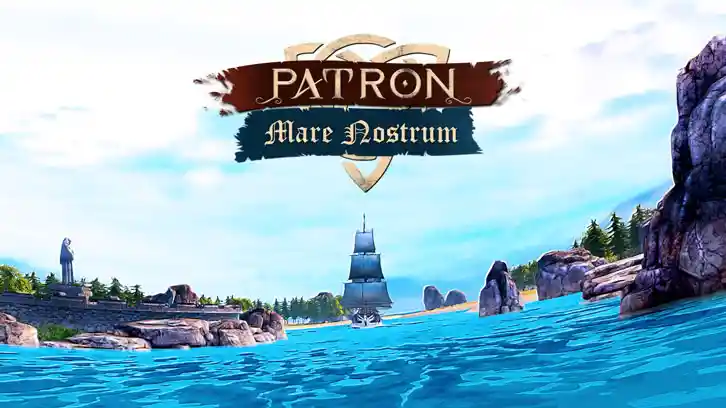 Read More
Read More
New Game Added: Patron
 by Aethyna
Aug 29, 2021
by Aethyna
Aug 29, 2021


 Read More
View more
Read More
View more
Featured Games
 Realm of Warriors
Assemble a party of the strongest heroes to take on both the rebel forces and the corrupting influence of the Dragon Demon in this Chinese-themed browser MMORPG, Realm of Warriors!
Realm of Warriors
Assemble a party of the strongest heroes to take on both the rebel forces and the corrupting influence of the Dragon Demon in this Chinese-themed browser MMORPG, Realm of Warriors!
 RAID: Shadow Legends
Recruit the best to join your team and take on Siroth, the Lord of Darkness himself!
RAID: Shadow Legends
Recruit the best to join your team and take on Siroth, the Lord of Darkness himself!
 Hustle Castle
Save the king and his daughter from the abyssal lord as he threatens to destroy your kingdom and marry your bride to be in this fun mmo simulation game.
Hustle Castle
Save the king and his daughter from the abyssal lord as he threatens to destroy your kingdom and marry your bride to be in this fun mmo simulation game.
 Dark Genesis
Play Dark Genesis and save the world from destruction with your allies.
Dark Genesis
Play Dark Genesis and save the world from destruction with your allies.
 War Robots
Head into the cockpit of a mech and decimate opponents in War Robots.
War Robots
Head into the cockpit of a mech and decimate opponents in War Robots.
 Blade of Kings
Blade of Kings is an idle RPG by Esprit Games. You’ll take a role of a warrior, defending the land from hordes of monsters and attempting to rise in rank in the kingdom. Take part in action-packed idle battles, use a variety of skills, raise pets, and achieve victory.
Blade of Kings
Blade of Kings is an idle RPG by Esprit Games. You’ll take a role of a warrior, defending the land from hordes of monsters and attempting to rise in rank in the kingdom. Take part in action-packed idle battles, use a variety of skills, raise pets, and achieve victory.






